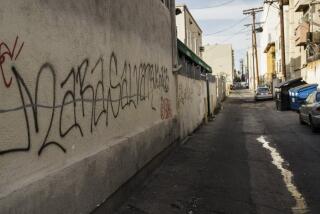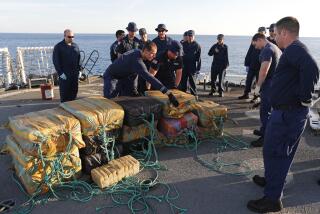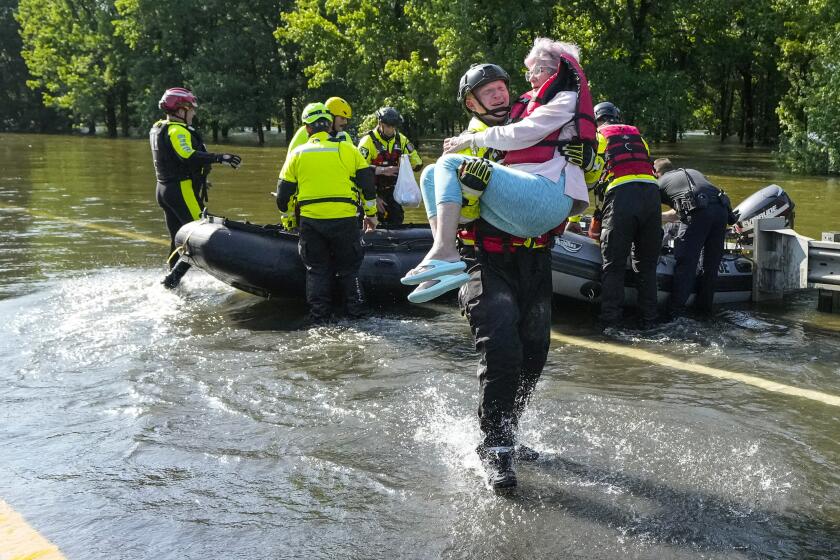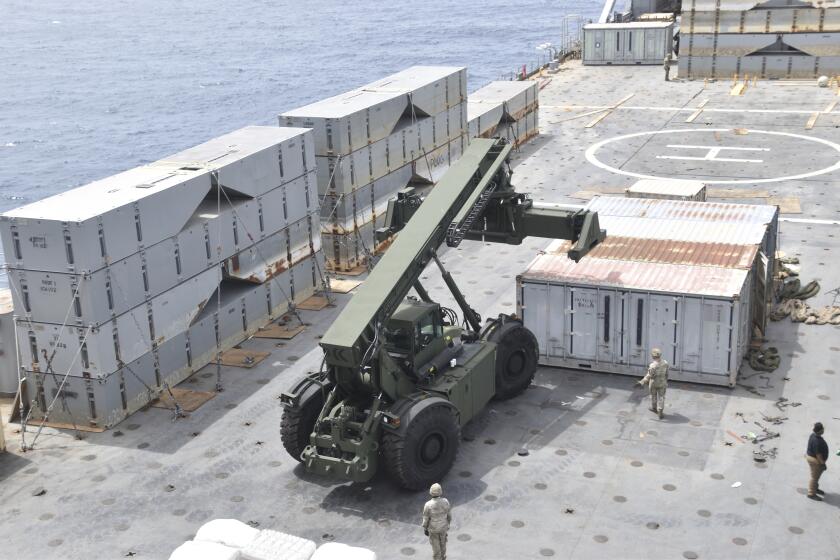Colombia extradites 14 paramilitary chiefs to U.S.
Colombian President Alvaro Uribe unexpectedly extradited 14 imprisoned paramilitary leaders to the United States on Tuesday, declaring that they had violated terms of a demobilization agreement.
The men were put on a U.S. government plane and flown to Miami as a first step before being arraigned on charges, including drug trafficking and money laundering.
Dozens of Colombian paramilitary leaders and 31,000 fighters agreed in 2006 to lay down their arms, give up illegal activities and make full confessions and restitution to victims. In exchange, they were promised light prison sentences and no extradition.
But the process came under fire from critics in and outside Colombia who said it went light on commanders accused of mass killings or the illegal appropriation of millions of acres of farm- and ranchland.
Last week, Carlos Mario Jimenez became the first major jailed paramilitary leader to be extradited after being accused of running his drug empire from his jail cell and not fully divulging his crimes.
Those extradited Tuesday included Salvatore Mancuso, Rodrigo “Jorge 40” Tovar and Diego “Don Berna” Murillo.
The paramilitary forces for the most part were organized in the 1980s by wealthy landowners as protection against leftist guerrillas. But authorities said they evolved into criminal enterprises.
In an address to the nation, Uribe said Tuesday that the former militia leaders were extradited because they continued to run their criminal empires and didn’t give up their ill-gotten gains.
“The truth has to be simple and timely,” Uribe told viewers, explaining that by not cooperating, those extradited forfeited the peace deal’s beneficial terms. “Manipulated truth stops being the truth.”
The U.S. Drug Enforcement Administration lauded the extraditions as a sign of an “unparalleled commitment to ridding Colombia of the drug trade and narco-terrorist organizations.”
Since he took office in 2002, Uribe has sent more than 600 Colombian drug or terrorism suspects to face U.S. justice.
But some analysts questioned the timing of the extraditions, which come as some of Uribe’s closest congressional allies are ensnared in a scandal in which they stand accused of conspiring with right-wing paramilitary gangs to rig elections.
“We consider this a desperate maneuver by the president to divert attention away from the scandal that has now resulted in arrests of 32 lawmakers, most of them his supporters,” said Jairo Ramirez, general secretary of the National Victims Movement.
Human Rights Watch and Amnesty International said the extraditions would deprive victims of a full accounting of the slayings, extortions and land grabs that caused widespread misery for several years before the demobilization agreement.
U.S. officials familiar with the cases said the apparent suddenness of the extraditions took them by surprise. Two officials also said they thought that Mancuso had been cooperating in investigations by both Colombian and U.S. authorities.
“I think they just cleaned out their jails and sent them up here today,” said one U.S. federal law enforcement official, who spoke on condition of anonymity because he was not authorized to publicly discuss details of the cases.
Carlos Suarez, a Bogota attorney who represents Mancuso, said the extradition of his client left him “as surprised as anyone.”
“We still don’t know what the legal arguments were. . . . We thought we were cooperating, that [Mancuso] was the farthest along in complying with the law,” he said.
Some analysts wondered whether the government’s action might lead to some fighters taking up arms again, but Alfredo Rangel of the Bogota-based Security and Democracy Foundation think tank said he thought it would spur more former paramilitary leaders to cooperate.
“There will be more pressure for those in the process to tell the truth and make reparations because now the risk of extradition is real, not hypothetical,” Rangel said.
The only major paramilitary leaders left in Colombian jails are Freddy Rendon, known as “El Aleman,” and Roberto Duque Gaviria, alias “Ernesto Baez.”
--
josh.meyer@latimes.com
Kraul reported from Bogota and Meyer from Washington.
More to Read
Start your day right
Sign up for Essential California for news, features and recommendations from the L.A. Times and beyond in your inbox six days a week.
You may occasionally receive promotional content from the Los Angeles Times.






